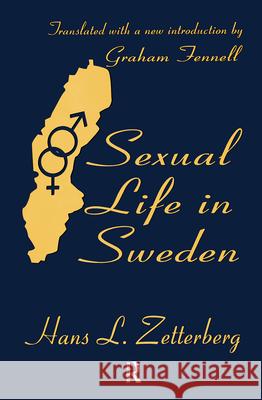Sexual Life in Sweden » książka
Sexual Life in Sweden
ISBN-13: 9780765801470 / Angielski / Twarda / 2002 / 336 str.
Now available in English for the first time, Sexual Life in Sweden is a classic piece of sex research by one of Sweden's most distinguished social scientists. Sponsored by the Royal Commission on Sex Education more than thirty years ago, it remains the only study of sexual behavior in a randomly selected adult population sample ever funded by a government. Because an astonishing response rate was achieved (91 percent) during the course of Zetterberg's research, the claim that Sweden is one of the few countries where generalizations about national sexual behavior can be made may be stated with confidence. Zetterberg's study matches the gender of interviewers to that of subjects. From a theoretical perspective, Zetterberg analyzes the change in Sweden from a -restrictive- to a -contraceptive- society. The study makes it clear that, with over 1,000 acts of intercourse for every live birth, 90 percent of sexual activity between consenting adults in modern Sweden does not result simply for procreation. Nevertheless, the research yields a picture of a highly responsible society. Zetterberg explores the emergence of two powerful new norms: -when having sex, you must use contraception, - and -when in an existing sexual relationship, you must not start another one.- He also examines the issue of abortion as part of a concept of social justice. The author compares the behavior of those who experience an unwanted pregnancy with those who do not, and explains that abortion is seen by Swedes as part of the provision of the welfare and social justice system. Included is an examination of the sexual behavior of young people-the age of their first sexual experience, the circumstances surrounding it, whether positive parental involvement in their children's lives has any influence on their sexual conduct, and sex education programs in the schools. This translation of Zetterberg's study has been prepared by British sociologist Graham Fennell, who also authored a new introduction positioning Zetterberg's work in the history of sex research and comparing its findings with contemporary studies in Scandinavia, Western Europe, and North America. In light of the ongoing controversies about sex education, its conclusions remain relevant to policy discussions today.











